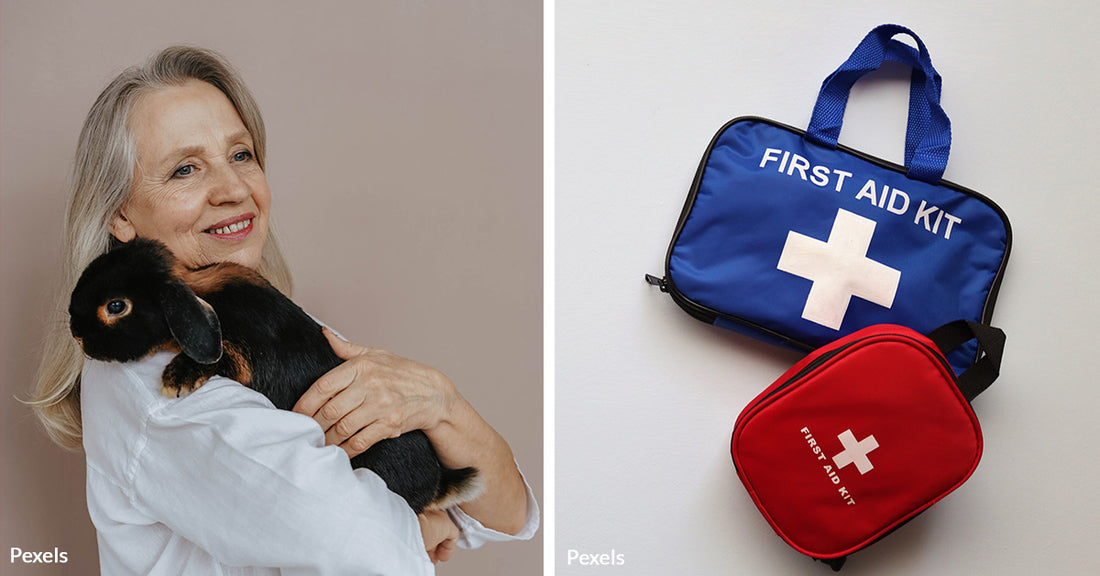Pet First Aid Essentials: How to Prepare for Your Pet's Unexpected Emergencies
Matthew Russell
April marks Pet First Aid Awareness Month, a crucial time for pet owners to familiarize themselves with skills and tools to address emergencies effectively.
In case of first aid emergencies, it is critically important to be prepared. Here are some tips that will help you ensure your pet’s safety and well-being.
 Photo: Pexels
Photo: PexelsApril is Pet First Aid Awareness Month.
Understanding the Need for Pet First Aid
Pets, much like humans, can encounter unexpected health emergencies. Recognizing Pet First Aid Awareness Month underscores the importance of being ready to act swiftly and knowledgeably in these situations.
While first aid is not a substitute for veterinary care, it can be life-saving in the critical moments following an accident or health issue.
 Photo: Pexels
Photo: PexelsKeeping a pet calm during first aid can aid in recovery.
Creating a Comprehensive Pet First Aid Kit
A well-stocked first aid kit is vital for any pet owner. According to Met Life Pet Insurance, key items should include gauze, adhesive tape, a digital thermometer, antiseptic wipes, a muzzle, and a leash. Keeping your veterinarian's contact information and numbers for emergency services like the Animal Poison Control Center is also crucial.
In addition, consider including items like bottled water for cleaning wounds, collapsible bowls, treats, and a flashlight. As Today's Veterinary Practice reports, a portable first aid kit for your car is also advisable, ensuring you’re prepared even when away from home.
 Photo: Pexels
Photo: PexelsA pet first aid kit should include gauze, adhesive tape, and a digital thermometer.
Emergency Handling and Care
When dealing with an injured pet, it's essential to approach them with caution. Pain and fear can provoke unexpected reactions, so it's advisable to avoid hugging or comforting your pet in a way that could scare or injure them further, advises VCA Hospitals reports. If your pet is hurt, assess their injuries gently and contact your vet or an emergency animal hospital immediately.
Pet CPR and First Aid Classes
Knowledge of Pet CPR and first aid is invaluable. Many organizations, including the American Red Cross, offer classes to teach these lifesaving skills. Learning how to handle common emergencies, like choking or accidental poisoning, can make a significant difference in your pet's survival and recovery.
 Photo: Pexels
Photo: PexelsImmediate veterinary care is vital after administering first aid.
Preparation for Larger Emergencies
In the event of a significant disaster, Pawlicy Advisor recommends having a "go bag" for your pet, complete with essentials like food, water, medication, and veterinary records, is essential. Remember to also include items to comfort your pet, such as a blanket or favorite toy.
Digital Resources and Apps
Leverage technology to your advantage. The Red Cross offers a free Pet First Aid app, providing a wealth of information on pet safety, emergency care instructions, and even a pet-friendly hotel locator. These digital tools can be a valuable resource in both preparing for and responding to emergencies.
 Photo: Pexels
Photo: PexelsPreparing a "go bag" for pets ensures readiness for larger emergencies.
The Importance of Being Prepared
Pet First Aid Awareness Month serves as a reminder of the responsibility pet owners have to be prepared for emergencies. By assembling a first aid kit, learning key first aid and CPR techniques, and understanding how to react in emergencies, you can ensure you’re ready to provide the best care for your pet when they need it most.
Click below and take the pledge to be prepared for your pet's first aid emergencies if and when they occur!

